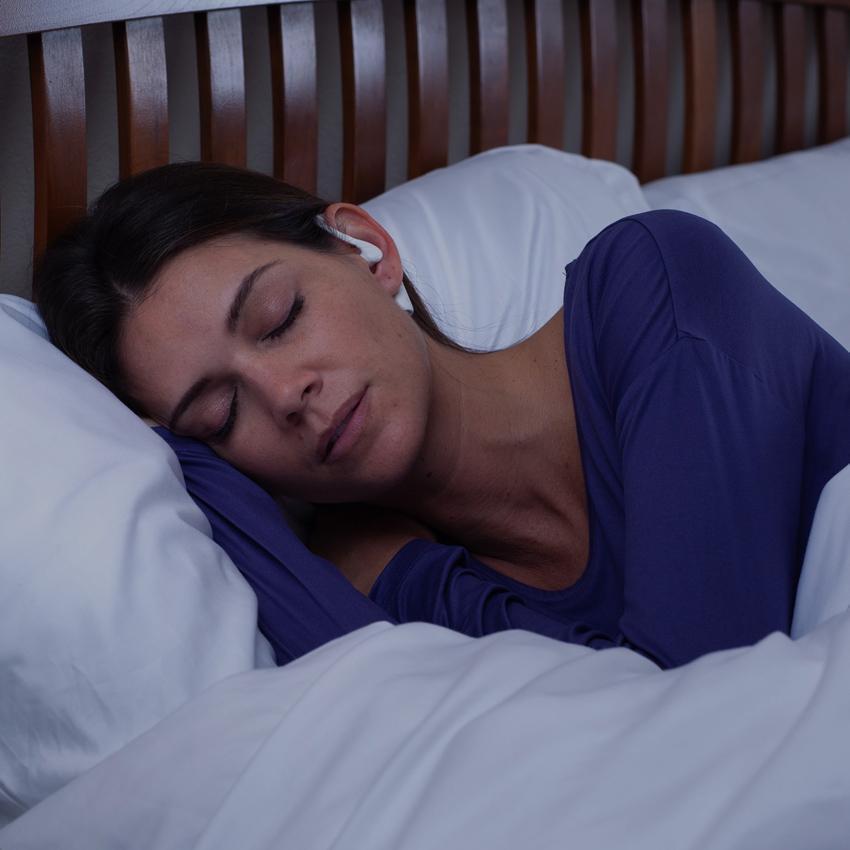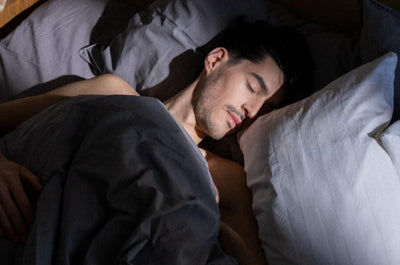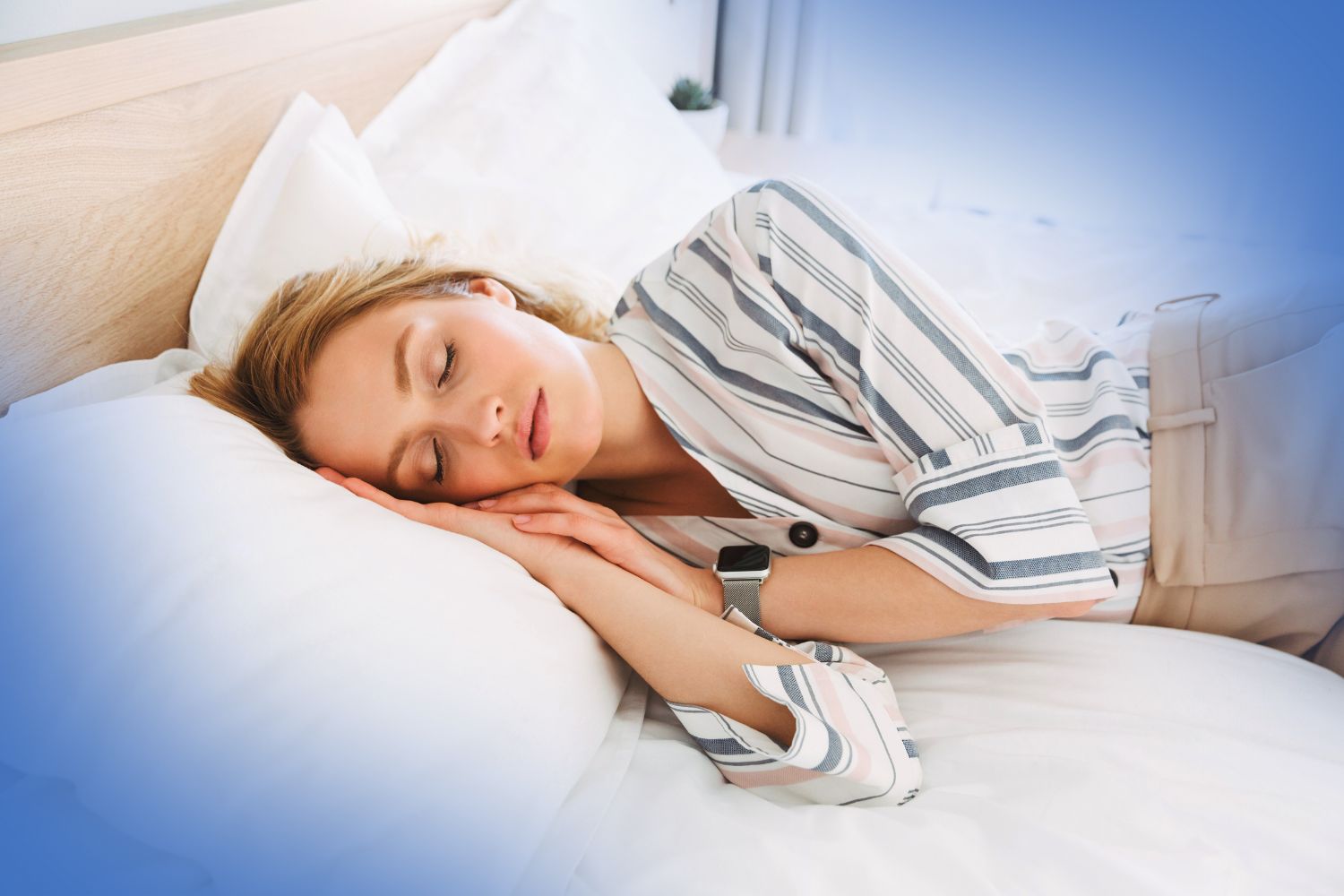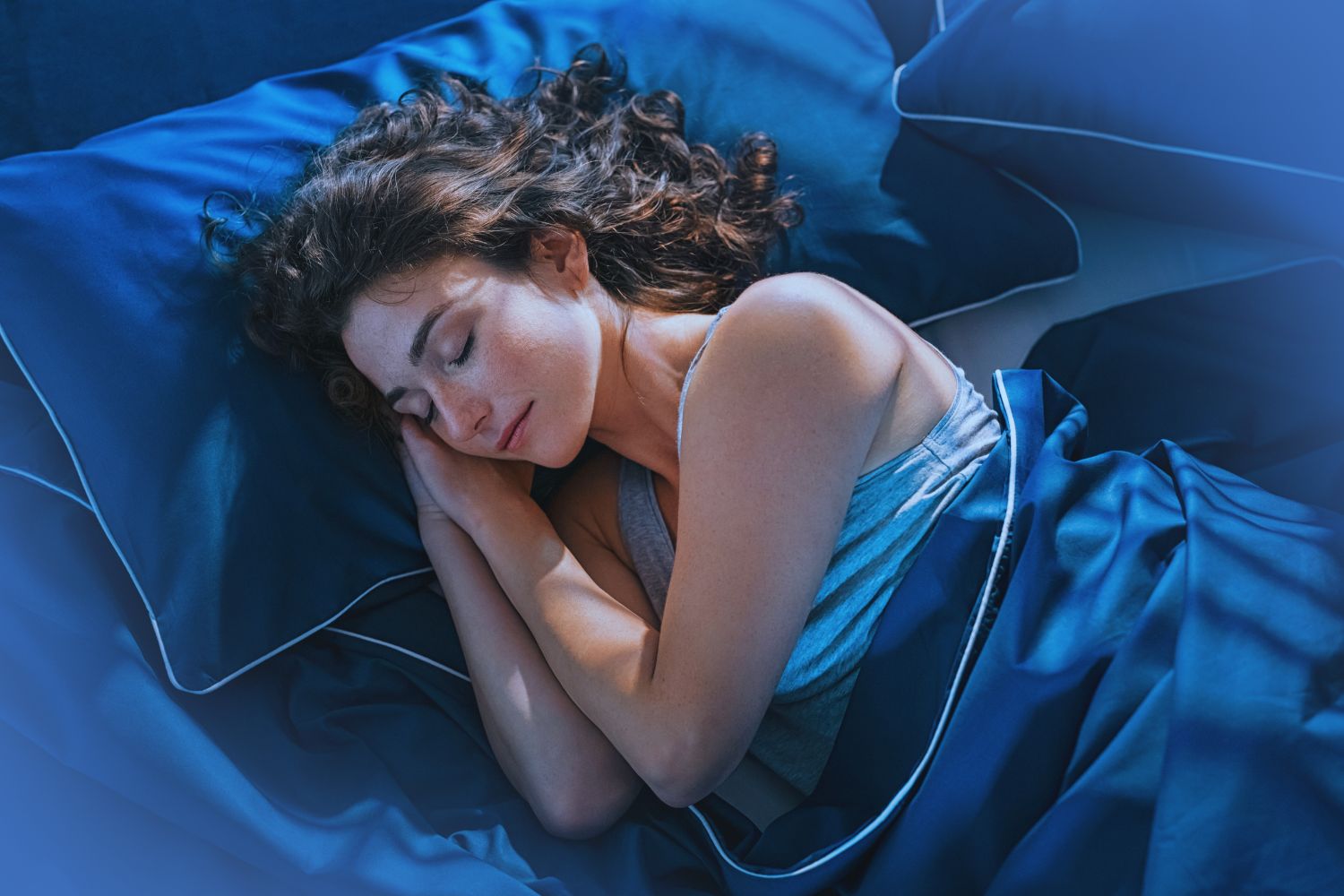
How to Get More Deep Sleep
Deep sleep, also known as slow wave non-REM sleep, is the stage during the sleep cycle needed to ensure efficient brain function and memory. While all the sleep stages are important, this stage is key to sustaining overall mental and physical health. Sufficient deep sleep helps us feel more energetic and focused—and it also gives us an immunity boost. In this post, we’ll look at deep sleep benefits—and how to get more deep sleep.
The main purpose of this third stage of sleep called deep sleep is to repair and restore the functions we require to feel and perform at our best each day. These include immune function, muscle growth and memory restoration. Without adequate deep sleep, we’re more vulnerable to depression, infections, and long-term illnesses.
Deep Sleep Benefits Overview
- Improves one’s mood and outlook on life.
- Helps you think more clearly so decision-making is easier.
- Boosts immunity which reduces frequency of illness.
- Promotes maintenance of healthy moderate weight.
- Improves brain health which lowers risk of dementia.
- Lowers risk of type 2 diabetes and cardiovascular disease.
Reaping the benefits of more deep sleep
Mood Boosting benefits of deep sleep:
Getting enough deep sleep helps stabilize memories in the brain. After that, the REM stage of sleep helps link related information to provide aid in problem solving. Then you’re better able to process emotional memories—and this can reduce emotional stress.
Without help from these sleep stages, you’re more likely to react differently to emotional memories. Fewer positive emotional reactions and more of the negative reactions.
Chronic sleep loss also increases the chance of suffering an actual mood disorder. In fact, insomnia can make you five times more likely to develop depression and increases chances of developing an anxiety or panic condition.
How deep sleep improves your ability to focus:
Those who struggle with sleep deprivation also struggle with recall and have difficulty holding onto details. Lack of quality sleep disrupts your ability to focus—making it hard to process new information.
Getting enough deep sleep supports both learning and memory. It gives your brain enough time to store your memories properly so you can recall them accurately later.
Deep sleep fights off germs to benefit the immune system:
Deep sleep benefits your overall health by helping your immune system ward off illnesses. Chronic sleep loss alters the way your immune cells work. They may not attack harmful germs or viruses quickly enough—and this may mean you get sick more easily.
Sufficient deep sleep can help keep your immune system running strong, so you’re not constantly catching colds or feeling run down. It can also help you recover more quickly if you do happen to catch something.
Get more deep sleep to support weight control:
Bottom line is, you don’t feel as hungry when you’re well-rested. Sleep deprivation negatively affects leptin and ghrelin—these are hormones in your brain that work to control your appetite. It’s much harder to ignore your cravings for unhealthy snacks and treats when these hormones are out of balance. And unfortunately, it doesn’t end there.
Weight management also requires moving your body—but who feels like exercising when they’re exhausted? First you need to work on fixing your sleep—that will help fix your cravings—and improve your energy to get you back on your exercise routine.
How to get more deep sleep for better brain health...
The non-REM stages of sleep prepare the brain for the next day’s process of learning. Not getting enough quality sleep can reduce this learning ability by up to 40%, whereas getting enough deep sleep strengthens memories and helps you connect different bits of information.
Deep sleep is believed to act as a “cognitive reserve factor” that may increase resilience against a protein in the brain called beta-amyloid that is linked to memory loss caused by dementia.
“Pink noise appears to amplify the power of the slower brain waves during deep sleep. When administered at night, it may help people fall asleep faster and get deeper, less fragmented sleep.”
Suruchi Chandra, M.D.
Experience deeper, more rejuvenating sleep with SoundOff pink noise earbuds.
Fall asleep, stay asleep, get your sleep—all night. Every night.

How to get more deep sleep? Try our brain-calming, noise masking earbuds. They block out disturbing noises that prevent deep sleep like snoring partners, barking dogs, thunderstorms and fireworks—while calming your brain to help you fall asleep more easily.
Get more deep sleep for a healthier heart.
The more sleep you lose, the longer your blood pressure stays elevated during a 24-hour cycle. This increase in blood pressure can lead to heart disease, even stroke.
When you get enough sleep, your blood pressure drops to healthier levels, giving your blood vessels and heart a chance to rest. This brings significant cardiovascular benefits.
Getting more deep sleep helps manage blood sugar.
Getting enough deep sleep also means you’re less likely to get type 2 diabetes. Blood glucose drops during the deep, slow-wave part of your sleep cycle – providing a reset. Without that break, your body has a harder time responding to your cell’s needs and blood sugar levels.
Make it a priority to reach slow wave deep sleep regularly—and remain there long enough, to get all the above benefits.
How many hours of deep sleep should you get?
According to the CDC, adults 18-60 should get at least 7 hours sleep each night. Approximately 25% of that time should be spent in deep sleep. Most adults need 1.5—2 hours of deep sleep per night.
Our bodies cycle through two phases of sleep each night. They are (1) Rapid eye movement (REM) sleep and (2) non-rapid eye movement (NREM) sleep which is broken down into three stages (N1-N3). It takes the body 4-6 times per night to cycle through all these stages with each cycle averaging 90 minutes.
What prevents deep sleep?
It’s important to note that quality of sleep as well as time spent in each sleep stage is easily altered by several factors including circadian rhythm, aging, brain injuries, anxiety, depression, and medications.

According to the AMA, 40% of people with insomnia may have a diagnosable mental health condition.
Addressing anxiety and depression is an important step in overall heath maintenance.
Reducing anxiety and depression will also help you get more deep sleep.
The most common mental health condition worldwide is Anxiety. Studies show sleep disturbances, especially insomnia, affect 50% of people with anxiety. Insufficient sleep can both trigger anxiety and make it worse.
This spotlights the bi-directional relationship between anxiety and sleep—with slow wave sleep now being more widely considered as a potential targeted treatment for reducing anxiety.
Never settle for poor quality sleep
Abundant resources exist to help correct issues that may be preventing quality sleep—many are available at no cost. For instance, did you know the Sleep Foundation offers a free Personalized Sleep Profile?
Check it out to see your Sleep Score and how you may be able to adjust your lifestyle habits for better quality sleep. It will also give you access to personalized content for your specific needs—as well as exclusive deals on sleep products to keep you sleeping better.
About the lifestyle habits…
Maintaining our sleep priority means being mindful of our behaviors during the daytime. It’s not just about what happens when the day is over, and we start preparing for bed. Sure, our nightly sleep hygiene practices and relaxation rituals are important, but there are other things we do—or don’t do—throughout the day that impact our nighttime sleep.
Here are three areas where we can be more mindful about our habits to improve our sleep health…
1.—Naps
A short nap (30 minutes or less) can provide a much-needed refresher, helping us receive an energetic re-set so we can get more done. Things often go awry, however, if we push that daytime nap beyond 30 minutes.
Research has shown people taking naps of 30 minutes or more are more likely to have a higher BMI (body mass index). They are also more likely to have higher blood pressure and higher rates of obesity, heart disease and diabetes than individuals who don’t take naps.
When naps are kept short, one is less likely to have elevated blood pressure. Experts believe longer naps are a factor in the above conditions because of the disruption they can cause in nighttime sleep patterns—but also in nighttime eating habits.
A 10% increase in body weight can make you six times more likely to develop sleep apnea.
Maintain a moderate weight to get more deep sleep.

2.—Diet
When it comes to our diets, we’re not just looking to manage our weight—though it’s important to note excess weight is not helpful to our sleep. People who are obese more often report having insomnia, daytime sleepiness, and fatigue. Additionally, they’re more at risk for Sleep Apnea, Depression, GERD (gastroesophageal reflux disease,) Asthma, and Osteoarthritis—all of which can negatively impact sleep.
Primarily, we need to be mindful of what foods and beverages we’re consuming— and at what time we’re consuming these meals/snacks. Why?
Because there’s a “best time” for each of us to do all the actions we perform each day. This includes when we should be eating our specific meals. Start working more closely with your chronotype to get the most sleep and health benefits from your diet.

What you eat and when you eat it makes a difference to both your weight and your sleep.
Work with yourchronotype to discover the best times to eat your meals, exercise—and when you should go to bed, and get up in the morning—to start getting more deep sleep.
Foods for a better night’s sleep…
Some foods wreck our sleep and should be avoided before bed. In brief, these include spicy, sugary, and fat-filled foods. And of course, caffeine and alcoholic beverages.
However, there are many foods we can use to help us sleep better. Check out this post to learn more about nutrition and how it affects your sleep. Meanwhile, here are three nutrients to address three specific sleep issues that may be preventing deep sleep…
Trouble falling asleep?
Supplement your diet with foods containing the amino acid Tryptophan to release the chemicals Melatonin and Serotonin in the brain. These chemicals make you feel happy and sleepy and play a role in sleep cycle maintenance.
Add these foods to boost melatonin: Eggs, Grapes, Mushrooms, Pistachios, Rice, Tart Cherries, and Warm milk.
Have restless legs?
Magnesium relaxes muscles, strengthens bones, and increases blood circulation to all areas of the body—which can help prevent episodes ofrestless leg syndrome.
Add these foods to avoid restless legs: Avocados, Cashews, Dates, Oats, Pumpkin seeds, Spinach, Spirulina, and Swiss Chard
Need more REM sleep?
Calcium plays an important role in sustaining REM sleep. Experts have found calcium helps the brain process tryptophan to release melatonin and induce drowsiness.
Add these foods to get more REM sleep: Almonds, Cheese, Orange juice, Sardines, Collard greens, Mustard greens, and Turnip greens.
According to a SleepFoundation.org survey, 93% of adults snack before bedtime at least one night per week. High fiber foods like nuts, seeds, popcorn, and fruit are not only filling, but a better option for pre-bed snacking.
Research showed adults who snack before bed on nuts and seeds averaged 32 minutes more sleep on average than those consuming chips or crackers. Be mindful of your nighttime snacking to get more deep sleep.
Use up your energy before bed so you're tired enough to fall asleep at
night.
Regular, moderate exercise will help ensure you get more deep sleep

3.—Exercise
One of the key things we covered in our Sleep Chronotype Series is the importance of using up all your excess energy during the day, so you’ll be tired enough to fall asleep when it’s time for bed.
Exercise is also a pillar of overall health and fitness—and helps you maintain a healthy weight. That makes moving your body more a win-win-win. Though some exercises are better than others when it comes to helping you sleep.
It’s also important to exercise at the best time of day for your individual chronotype. Check out this blog for tips on the best exercises to help you sleep.
What else can you do to get more of the deep sleep you need?
Take a warm bath in the evening.
Spending time in a warm bath or sauna is believed to promote slow wave sleep. But the sleep benefits don’t stop there. What else does it do?
-
- Helps you relax and unwind to prepare for sleep.
-
- Opens airways so you breathe better.
-
- Can kill bacteria and improve immunity.
According to Harvard Medical, soaking in a bathtub or sauna may also help prevent heart attacks and strokes when done on a regular basis. This is because the high temperatures cause your blood vessels to dilate which lowers blood pressure.
What not to bathe in?
Exposure to blue light from your electronic gadgets, computer, or television within three hours of bedtime can prevent you from entering deep sleep. In fact, flooding your sleep space with blue light is a sure way to disrupt your entire sleep cycle.
That’s because blue light tricks your brain—it makes you think it’s daytime which causes your body to stop releasing the melatonin it needs for a good night’s sleep.
We pretty much already know this, but still… according to a sleep quality survey from US News & World Report, more than 60% of Americans use their phones up to a few minutes before they fall asleep. And 33% fall asleep with the TV on.
If you’re someone who just can’t detach from your electronics, at least make a point of using some blue-blocking glasses.
Learn to let go…
Approximately one-third of Americans report they don’t get quality sleep:
-
- Nearly 20% of people said they rarely or never wake up well rested.
-
- 16% only feel well rested a few times a month.
-
- Only 13% said they usually wake up every day feeling well-rested.
Not surprisingly, much of the reason we’re losing sleep is due to worry and stress. As of last August, 41% of Americans reported worrying about the economy—and I can only guess that number has gone up. We turn on the TV and the news cycle is full of even more disturbing distractions to top off our many personal concerns, like family relations, job stress, and overall quality of life.
So, what happens when we lay down to sleep? Sometimes it’s just an endless loop of mind-chatter…
Oh no, I forgot to return that call… How will I finish my projects on time? Should I stop eating carbs? I could really use a vacation... but I'm not ready for a bathing suit...
Then your sibling sends you a late-night text, and it’s … You're messaging me now for that?
It’s important to remember that bedtime is for sleeping. Not ruminating. Not answering text messages. Let go of the day—it’s over—you need your sleep to prepare for the next one.
One thing I found encouraging was a section in the sleep survey above that showed what people would be willing to give up for one month to get their sleep. 18% said they would give up their phones for a month. I’m not sure they could follow through on that, but it sounds like a good place to start. And this seems like a good place to wrap it up. So, just a reminder…
We help people sleep.
SoundOff sleep earbuds were invented to block out snoring partners—but they also block out many other sleep disturbing sounds—and thanks to our proprietary pink noise technology, that includes the chatter running through your noisy mind.
Thousands of people just like you are getting the sleep they need with SoundOff Earbuds. Give them a try, risk-free, with our 30-night satisfaction guarantee!
Until next time,
Wishing you great sleep… all night. Every night.

































